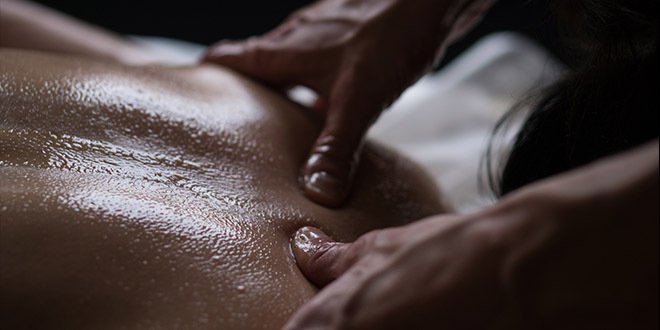Finding a balance in your sex life is a delicate matter; you might want to think about how, when, and how often you have sex, who you share it with, and how the rest of your life affects it. Ayurveda might help you in this process – it is thousands of years old traditional Indian medicine that, as a holistic approach to health, puts an emphasis on the balance of various energies that govern our functioning. A really productive aspect of Ayurveda is the idea that human beings come in different shapes and thus, instead of applying universal cure for everyone, each person needs have to be addressed differently.

Sex according to body type
The system recognizes three substances called doshas, namely Pitta, Vata, and Kapha. Doshas are supposedly present in all living things, regulating bodily functions, including sex and reproduction. They play a dynamic role in our lives, and even though a person usually has one dominant type of energy, the energies are constantly competing and changing in dependence of various factors like the food we eat, time of day, yearly cycles, activities we do, etc. Ayurveda even classifies people in relation to the prevailing energy that shapes us in three possible types. The Pitta dominant types are fiery, energetic, passionate and, for better or worse, generally intense people. Those with the dominant Vata are thin, lively and creative, but also often have a hard time focusing, have trouble sleeping, are unstable and indecisive. On the other hand, Kapha types are strongly built with the tendency to be overweight, and while emotionally calm, stable and thoughtful, they may also be slow, passive, and stubbornly resistant to change. By shaping us, doshas also influence the way we relate to our sexual partners.
Doshas and sex
So if we have two Pitta types, characterized by lots of energy, intense personalities and a massive sex drive, the hump might be a spectacularly intense explosion of passion, but the relationship might just be a volatile recipe for disaster. Vata types are characterized by their ever changing nature and impermanence, so two of those might not be able to maintain a very long relationship, or, if heavily out of balance, might even have a hard time maintaining a single intercourse from foreplay to climax without changing their mood. Their libido might be raging at one time and non-existent at the other. Kaphas are a different pair of socks altogether – being calm and stable with low libido, they might make a good character match for a long-term relationship, but their sex life could become increasingly rare until reaching a point of a complete standstill. And even when their sex drive is not completely hibernating, they might be just too lazy for love and opt for a nice meal instead. When mixing dosha types, extremes might also not be a perfect mix – so if you are an extremely passionate person with a libido of a rabbit, how likely are you to match well with a very passive person whose idea of frequent sex is two times a year. Balance is everything, so it is best to strive to first improve your own personal balance and then to find a person that fits the picture. For instance, a possible good match would be a big stable Kapha guy with a fiery horny Pitta girl. In gay terms, maybe it would be something like a Kapha bear top with an intense Pitta twink bottom. The important thing is to find a complementary balancing energy; meaning a hot Pitta might be balanced by the coolness of Kapha and vice versa. Vatta might gain stability from mixing with Kapha or a sense of direction from Pitta while bringing a touch of playful creativity in both the relationship and in bed.
Optimal time and frequency
According to Ayurveda, our body is made out of seven tissues called dhatus. One of them is rasa dhatu, which is a blood serum or sap. From this dhatu, during a month long process, our bodies produce sexual fluids or the sukra dhatu. Those fluids are further concentrated to produce a powerful concentrate called ojas. The point of all this is that it takes time and effort to produce and replenish sexual fluids and energy. That is the reason why Ayurveda considers it unwise to waste this energy by overly frequent intercourse. It further defines the reasonable frequency of sexual encounters in dependence of the season of the year. So, since sex is considered to be an activity that stimulates the internal fire, called agni, it is more appropriate to have frequent sex in colder parts of the year like winter and spring when you can get by with as often as three times a week. In summer, however, when one might want to avoid overheating, it would be advisable to avoid having sex more than once every two weeks. Ayurveda further advises about the time of day to have sex. Since sex and especially orgasming are believed to produce the already mentioned Vatta substance in our body, it can interfere with our sleeping cycle. So instead of the late evening sex, which is more or less a standard for many of us, it would be more appropriate to have sex earlier in the day with optimum time being early morning after sunrise.
